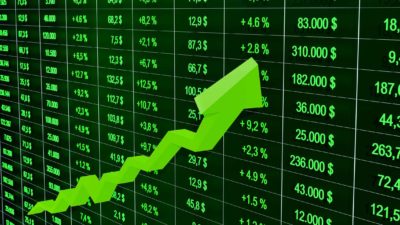The Magellan Financial Group Ltd (ASX: MFG) share price has gone from around $11.50 in July 2014 to $53.50 today, with the international equities manager also paying out around $4.96 per share over that period. In other words it's returned around 400% in 5 years on the back of some strong investment performance, institutional business development, and retail distribution.
Unfortunately, the past doesn't count for much in share markets and the real question for investors is whether or not the business and stock can keep on gaining in value?
After watching an interview with Magellan's founder, Hamish Douglass, by Owen Raskiewicz's Rask Media I was reminded of a couple of points that make the group a strong growth prospect.
First up, as I've mentioned many times this is a founder led business which means it's able to retain a good control on costs.
Anyone with buy-side experience at a leading fund manager will appreciate costs via staff headcount and operational efficiencies can vary wildly.
For example while leading investment analysts can value a business like Magellan, Perpetual Limited (ASX: PPT) or Pendal Group Ltd (ASX: PDL) using estimates of future cash flows discounted back to give a net present value and price target, it's harder for them to factor into their valuations the more qualitative aspects of a business.
For example I'd bet a lot on the fact that Magellan gets more mileage out of its average staff member (i.e. they work longer hours) than somewhere like Perpetual and that Magellan has fewer staff doing more work.
In turn those staff are probably more heavily aligned to the long-term performance of the business via share ownership.
Another financial services business and top share market performer that is also well known for carrying 'no passengers" is Macquarie Group Ltd (ASX: MQG). It's another business I've recommended owning shares in partly because it also gets a lot out of staff that are well aligned in terms of share ownership.
Generally, good companies, don't lose good people and you'll note most of the senior management at Magellan and Macquarie have been there a long time.
In Rask Media's interview Magellan's founder also repeatedly boasted of his love of cost savings or modest living despite being worth what must be around $500 million.
The CEO even boasting how Magellan got a very good or 'cheap lease' on its new offices in Sydney, while by contrast other companies like Perpetual (just down Sydney's Martin Place from Magellan) have been in the news for spending big on gaudy boardrooms. Notably, the Perpetual share price has gone nowhere since 2002.
Hamish Douglass also suggested in the interview that he was happy to continue at Magellan indefinitely even referencing how Warren Buffett and Charlie Munger are both into their 90's. As such, this would appear to rule out one of the stranger arguments of Magellan bears that Hamish Douglass might go onto something else.
Although of course it should be noted that Douglass is Magellan's talisman in terms of winning new institutional business mandates and retail FUM flows that have driven Magellan's growth.
Institutional business development will generally involve a final sales pitch where a CEO and CIO for example will commonly present to potentially big clients and their advisers. As such it's correct that if Mr Douglass were to hit ill-health or the like it would be a negative for the business for many reasons,
Magellan though does appear to have carved itself out a niche in selling its investment philosophy of buying 'blue-chip tech' names like Apple, Facebook and MasterCard, alongside "blue chip consumer" names like Starbucks and Yum Brands.
Notably, Magellan has not faced a great deal of local competition in this space in selling this investment philosophy to institutions or retail investors and their advisers.
Personally, I expect buying "blue-chip tech" is likely to continue to be a market-beating investment philosophy in the decade ahead, which is another reason I continue to like Magellan.
I also wrote regularly how in 2018 the shares were actually cheaper than they had been in a long time despite the share price rising. This was because the profit growth was strong, but fund managers across the ASX were suffering earnings multiple de-ratings (probably rightly) due to the ongoing rise of index tracking or super-low-fee passive investment funds.
In this article I don't have time to cover Magellan's valuation on conventional terms like price-to-earnings or book ratios, other than to reference it's now historically high on about 26x analysts' estimates for $2.05 in earnings per share over FY 2020.
Really though the point of this article is to show how it can pay to focus on qualitative factors over quantitive factors like PE ratios as an investor.
Another factor that points to the quality of a business is return on equity as a measure of an asset's profitability.
Magellan's has hovered consistently between a very high 40% to nearly 60% between FY 2014 to FY 2019.
In my next article I'll use some simple examples to explain why this kind of high return on equity represents a buy signal to smart investors.
Overall then I remain bullish on the outlook for Magellan as it closes on in a $10 billion valuation. In fact due to its scary profitability (high ROE) and operating leverage, I expect it could double in value again over say the next 5 years to lift its shares above $100.
Although of course I'd also note Magellan shares come with a lot of risk and could easily fall 50% in a few months if a bear market were to hit US equities for example or if Magellan's investment performance were to sink. As such anyone interested in buying shares should only do so as part of a balanced investment portfolio.








